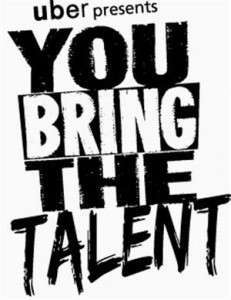Continued from the previous post…
No longer dependent on “artist development” from record companies managing the modern equivalent of the company store, musicians now have the ability to create their own success, build their own value, maintain control of their own careers, and follow their muse. In a sense, when the changes are complete, the music business will have become the musician business.
It’s a new world of customer customization and musician empowerment, and the independence that lies at the heart of it is a fundamental characteristic of Memphis music itself.
The digital wave will inevitably wash away the vestiges of the music industry as we have known it, and with Memphis’ history of entrepreneurial leaps – whether inventing American popular music or modern international commerce – there’s no reason that our city can’t get there first and become a dominant player in music again.
Guiding Principles
Knowing this, what guiding principles should we follow? (And some of these apply to talent generally, not just to musical talent.)
Invest in talent. It’s the mantra in the knowledge economy, and it’s especially true in Memphis, a city with a rich vein of creativity. Rather than put millions of dollars on the line for big ideas, a venture fund is needed to invest in creativity that refuses to be limited by conventional thinking or old business models.
Empower bottom-up solutions. Memphis’ history shows that top-down programs find little traction with musicians known for their independence. (Required reading: the Chips Moman file in the Memphis Room of the Central Library.)
Create musician-centric strategies. With the Music Commission swinging for the fences, musicians often feel like afterthoughts. There is the widespread suspicion that music initiatives aren’t about musicians, but an agenda thrust upon them. Successful strategies need to be defined simply – whether they put money in the pocket of local musicians.
Make Memphis music ubiquitous. Our music should be the thread that weaves together the fabric of the city. When people dial the mayor’s office in Seattle, they hear local bands, and the city website even offers information about bands, their web links, and podcasting subscriptions. That would be a start, but we’ll know we’ve succeeded when our music finally greets people at Memphis International Airport.
Make music a key part of a larger creative worker strategy. Rather than treat music as another economic development program, it should be a way to unleash the creativity that is an innate part of Memphis’ psyche and create the vibrancy that makes cities appealing to knowledge workers.
Pursue distinctiveness as a competitive advantage. There is a proven economic advantage in difference, and in recent CEOs for Cities’ research of the 50 largest cities about talent, innovation, distinctiveness, and connectivity, Memphis scores highest on distinctiveness. In the report’s “Weirdness Index,” Memphis is #19, and if Memphis wants to emulate Austin in anything, it should be its “Keep Austin Weird” campaign.
Make music strategies transparent. Programs of the Music Commission and Music Foundation have been dragged down by turf issues, questions about priorities, and lack of dependable communication and involvement with government and community organizations. Yes, it’s a lot of trouble, but ultimately, success depends on it. The silos are way too prevalent in Memphis’s economic development strategies and programs, and it’s a big reason that everyone talks about the importance of talent but without doing much to address it.





Once again, SCM, right. on. the. money.
When I moved back home to Memphis 4 years ago, I brought along my bride whom I had married in 2007 while living overseas. She is a musician and has been supporting herself solely on her music since age 14. She had, of course, heard of Memphis and its music heritage: “home of the blues, birthplace of rock n roll” blah blah blah. We were excited to see what the Memphis music scene had to offer, and were excited to offer something different to the Memphis music scene. What we found was some silly bullshit.
Upon arriving, this extremely talented musician who had performed and recorded with top musicians around the world found that there simply wasn’t a way to live solely on music in Memphis. I was more than embarrassed by my city. I thought, for sure, my ‘music city’ Memphis will be a perfect fit. For a musician who has been embraced and has achieved a certain level of fame in global cities like Bogota, Shanghai and Singapore, she was never more disheartened that when forced to look for part time work as a receptionist so that we could make ends meet. Want to crush a musician’s soul? Put them behind a desk.
Don’t get me wrong. She has had more tools at her disposal to work on her art here than ever before. She’s met and worked with some of the most talented musicians on earth since being in Memphis. Through the help of the Memphis Music Foundation she has learned more about the business than ever before. But in order to “make it” in the music world, she will have to look outside Memphis.
I’m not dogging on Memphis music here, I’m dogging on Memphis music listeners. How do you support a thriving music community? Simple: HIRE MUSICIANS. If you’re too “scared” to leave your gated community out east and venture into Midtown or Downtown to catch a show and support the Memphis music scene, bring music to you. Memphis is ripe for a paradigm shift, especially among the tightly bound Memphis elite, wherein every house party (indeed, the foyers of the houses in Southwind are bigger than most music venues) tries to one-up their neighbor’s last party with the live music they bring in. Why can’t the conversation at the fancy shmancy hair salon in Germantown on Monday morning be “oh I booked this incredible singer for our cocktail party last weekend, you should book her for your Christmas party this year.” Or “we had a lovely jazz trio play our backyard bar-b-que, they’d be great at you daughter’s wedding.” Create an environment where people with the means are scrambling to book talent. On a city scale, booked talent is retained talent. Plain and simple.
Great lessons for Memphis, Matt, and the strategy is pretty direct: hire musicians. Amen.
matt, your wife is incredibly talented – i hope she does not get discouraged. in my nonprofit career years, it always wore me out to hear people say, let’s book so and so band for the fundraiser and ask if they will play for free. just as they always say, let’s call so and so restaurant and ask if they will donate food for the event. support local businesses – musicians, restaurants, artists, etc. – these people are not just working for fun, they are trying to make a living and add something important to our culture.
memphians always seems to take their musicians for granted. years ago, as a subscriber to the awesomely english mojo magazine, i saw more great articles about the memphis music scene and diverse talent here than i have ever seen written from our own journalists.
Memphis is a really tough town in which to make a living as a working musician. There isn’t enough of a music “industry” here. There isn’t enough disposable income, interest, etc., to work in Memphis exclusively except for a very few musicians. It isn’t that different in other cities of similar size except for those few which have a industry presence. It would be great if people would hire more musicians for private parties, that’s a good suggestion. Emphasis on HIRE them and actually PAY them.